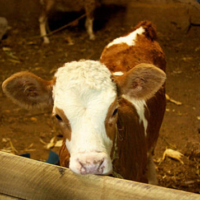
Angie Pepper (University of Roehampton) et Richard Healey (LSE)
2910 Édouard-Montpetit
Montréal
Les membres du CRÉ et du GRÉEA sont heureux.ses d’accueillir Angie Pepper (University of Roehampton) et Richard Healey (LSE), qui nous offriront une présentation intitulée « Animals, Inferiority, and Abolition ». La présentation sera offerte an anglais, mais les questions posées lors de la période de discussion pourront l’être en français ou en anglais.
Pour y participer par Zoom, c’est ici.
Résumé
In The Pecking Order, Niko Kolodny argues that natural persons have an irreducible claim against inferiority: a claim “that we not be set beneath another in a social hierarchy” (p. 5). Such social hierarchies, Kolodny suggests, are constituted by untempered disparities in power, authority, and regard. Though Kolodny acknowledges that the lives of many social animals are organised around the “pecking order” (p. 1, p. 87), other animals barely feature in his analysis of relations of inferiority. This omission is striking because many of our relations with nonhuman animals, especially those who have been domesticated, do not arise in “chance, one-off encounters”, but are rather “entrenched in an established, ongoing social structure” (p. 98). Think, for example, of our relations to livestock animals, laboratory animals, and pets. In each of these cases, animals are systematically subordinated by a pattern of social and legal norms that involve untempered asymmetries in power, authority, and regard.
These observations raise the question: Do non-human animals have a claim against inferiority within human-animal communities and hierarchies? In this paper, we argue that they do. Moreover, we suggest that nonhuman animals’ complaint against inferiority supports an abolitionist approach to animal rights. The basic idea is that to fully respect the rights of other animals, we must desist from using them as means to our ends. Importantly, the claim against inferiority not only supports the abolition of practices that clearly cause animals suffering but also those that need not, such as pet keeping.
The paper is structured as follows. First, we defend the claim that sentient nonhuman animals can have claims against inferiority against humans. We consider the view that only those capable of adequately recognising their position within a social hierarchy can have claims against inferiority. In response, we observe that while one’s ability to recognise one’s social position will likely have implications for what constitutes appropriate treatment, nothing in Kolodny’s account necessitates a recognition condition for the claim against inferiority. We further argue that the lack of a recognition condition is independently plausible if we wish to allow, for example, that young children in lower castes and individuals with severe cognitive disabilities can have claims against inferiority. Second, we argue that some nonhuman animals do have claims of inferiority against us. To illustrate this we show that animals have a complaint against being socially positioned as pets, which is grounded in a claim against inferiority. Specifically, we contend that the practice of pet-keeping is a socio-political institution which is constituted by untempered asymmetries in power, authority, and regard between humans and nonhuman animals. Furthermore, we argue that it is not possible to effectively temper these asymmetries while maintaining the practice of living with pets. This is because the tempering factors that undercut objections to social hierarchy in the human case (see Kolodny §5.2 and Ch. 8) either cannot be made to work for other animals (e.g., democratic governance) or otherwise require that the practice be dismantled. If our argument is correct, the implications are significant. Not only does this give us a further reason to abandon practices that harm other animals such as farming and biomedical research, but it suggests that the seemingly more benign practice of keeping animals as pets should be abolished.



